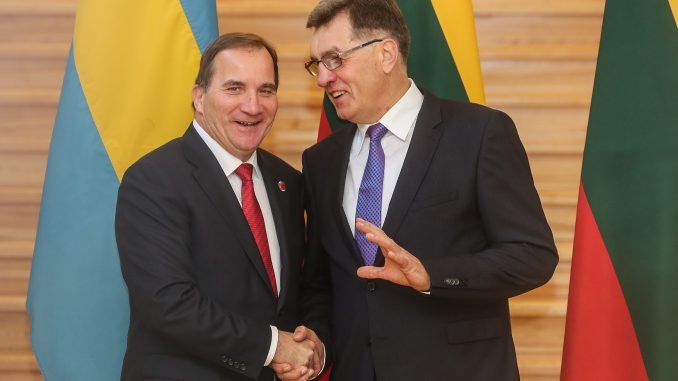
“Sweden is essential for the defence of the Baltic,” says Lithuania’s Dr. Vaidotas Urbelis, policy director at the Ministry of Defence.
Although this Nordic nation has a worldwide reputation as a neutral country, that is not true any more.
It is true Sweden is still not a member of Nato, and has a policy of not joining military alliances, but it is in the European Union, and all countries have made a solidarity declaration, agreeing to help each other if they are attacked.
At Lithuania’s ministry of defence, policy director Dr. Vaidotas Urbelis says Sweden’s troops are well trained in how to work with Nato.
Estonia, Latvia and Lithuania (as well as Denmark and Norway) are all Nato members.
But all the Baltic republics’ defence ministries say it’s up to the Swedish people and politicians to decide the details of how they would react if their fellow EU members were attacked.
Sweden’s stated policy is it “will not remain passive, if a fellow EU country is attacked or suffers a catastrophe.”
And Sweden has even agreed to host Nato forces.
This country could, for example, help to refuel Norwegian Nato planes on their way to the Baltic states. Mr Sakkov at the Estonian Defence Ministry says that kind of help would be useful.
And Latvia’s Mr Jānis Garisons, at that country’s Ministry of Defence, says sharing maritime information is something he would like to see. “You have one part of the picture and we have another.”
But there’s other aspect of defence. Like facing propaganda and what could even be called psychological warfare.
And on that score Lithuania’s Dr. Vaidotas Urbelis and Latvia’s Mr. Jānis Garisons are disappointed by the attitude of Sweden’s Viasat broadcaster. They say it carries Russian channels, but not Scandinavian ones, and hence helps to spread Russian propaganda.
Loukas Christodoulou
twitter.com/Loukas_rs
Radio Sweden (Sveriges Radio in English) radiosweden.org

Be the first to comment